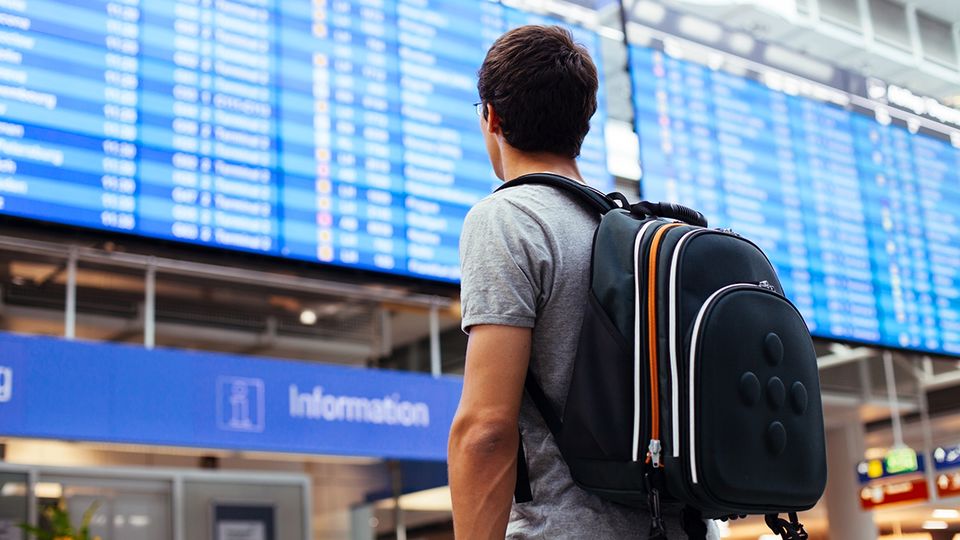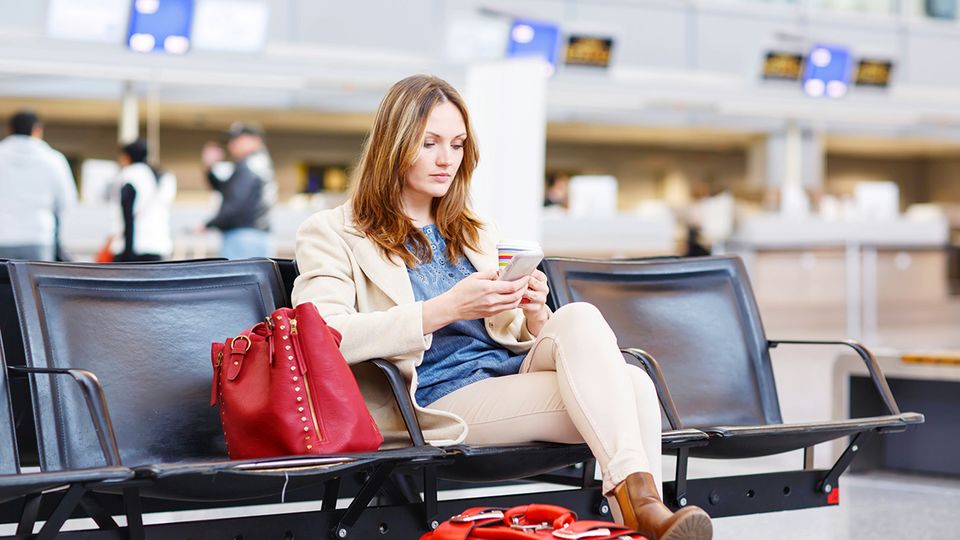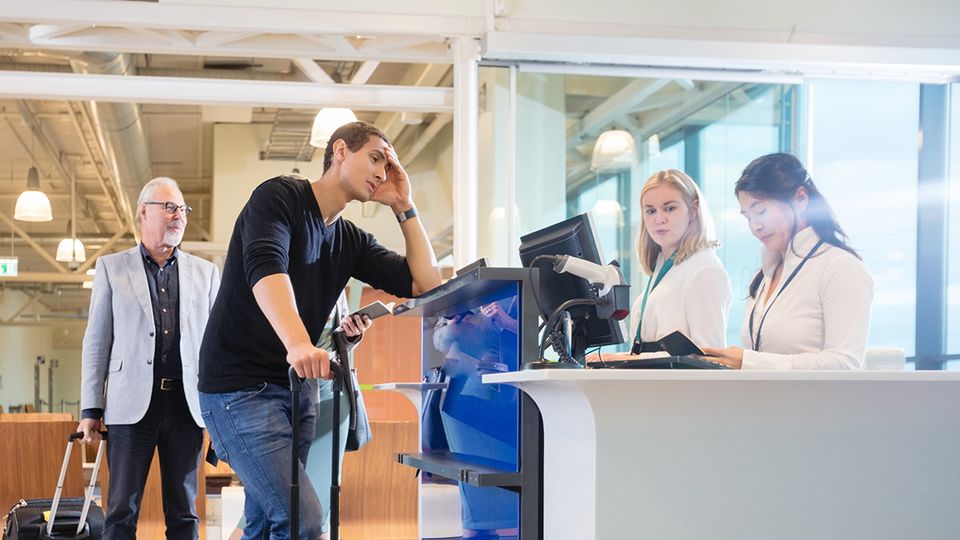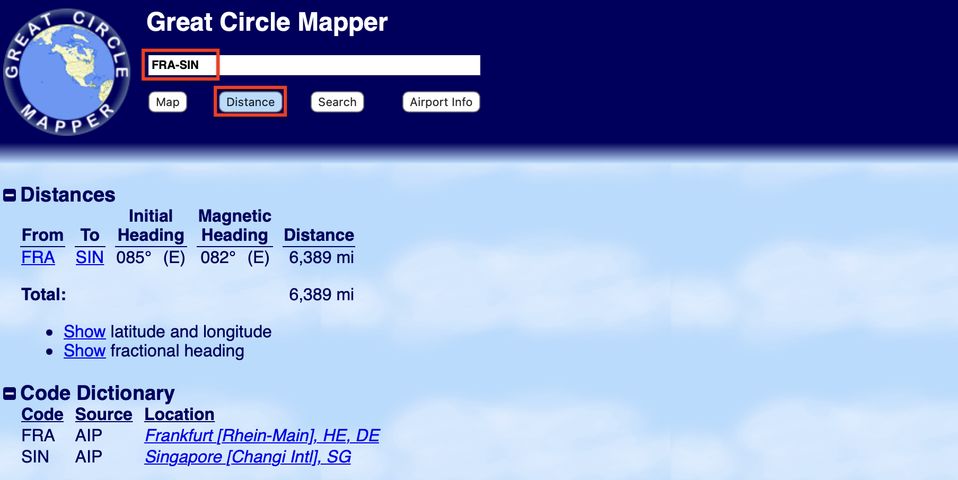
These European and British consumer rights laws can help you claim up to $1000 from airlines for flight disruptions.
By Chris Ashton, June 29 2023 Share this article:

Take all the credit when you join Virgin Australia Business Flyer. Get up to $1,000 Travel Bank credit to use on future flights when you sign up and fly. Join by 28 Oct 2024, fly by 24 Nov 2024. Membership and promotional T&Cs apply.
Few things compare to that sinking feeling when you see ‘cancelled’ or ‘delayed’ on the airport departures board. It’s become a frustratingly common experience in recent months, especially across Europe and the UK, as global travel bounces back into chaos.
But two flyer-friendly consumer rights laws known EU261 and UK261 require that airlines pay for your inconvenience – and that compensation can be as high as $970 per traveller.
Here’s a rundown of what the laws are and how to make them work for you: the first section of this article covers EU261, and the second addresses the newer UK261 introduced for the UK in the wake of Brexit.
In this article:EU261 (also known as Regulation 261/2004) is a “passenger’s right” rule dictating what airlines owe travellers in the event of cancellation or delay.
It applies to any flight departing from an EU member state – even if it’s on a non-European airline such as Qantas, Emirates or Singapore Airlines.
That compensation varies depending on the situation, but can include food, hotel accommodation (in the event of an overnight delay) and even transportation between the airport and hotel, if required – all of which airlines must provide to the passengers without charge as part of their ‘duty of care’.
In most instance, you can also request financial compensation – but the onus is on you to make that request, because even if you’re entitled to a claim, airlines don’t have to do anything until you approach them about it.
In brief, the situations where EU261 applies are:
Your entitlements also differ depending on the length of flight and the number of hours you’re affected.
The EU261 Flight Compensation Regulations cover journeys departing from EU member states on any airline – including the seasonal Qantas flight QF6 from Rome to Perth and Sydney – as well as flights to EU member states from abroad if those are operated by a European airline.
The ruling applies in the following situations:
For example, Singapore Airlines flight SQ25 from Frankfurt to Singapore would fall under the ruling, as it’s departing from an EU member state. However, SQ26 from Singapore to Frankfurt is not covered by EU261.
Passengers flying the same route with Lufthansa, on the other hand, would be covered in both directions between Singapore and Frankfurt, as Lufthansa is based in Germany, an EU country.
The same applies for flights between Singapore and Europe on Air France, Finnair, KLM, Swiss and other EU-based carriers.
Note that the operating airline is key here. Codeshares on non-EU airlines – travelling from Singapore to Frankfurt on a Singapore Airlines flight with an LH flight number and Lufthansa-branded ticket, for example – would not be covered.

The amount of compensation you’re entitled to claim depends on the distance of the flight and how long the delay is.
And we’re talking serious delays, measured in hours – running 30 minutes late doesn’t cut it.
The standard way to calculate a delay is not based on when the plane lands but when the doors are opened and passengers are invited to disembark. If that’s more than three hours after the scheduled time, here’s what you could claim:
Remember that the delay is calculated based on how late you reach your final destination, which includes missed connections.
For example, if your journey is Paris to Dubai to Sydney and a delay to your Paris-Dubai flight means you miss your onwards flight from Dubai to Sydney, forcing you to wait for the next Dubai-Sydney service, then if you eventually arrive into Sydney more than four hours past your original schedule, you’re entitled to cash compensation.
EU261 has several conditions around the cancellation of flights, covering eventualities such as:
In the event of a cancellation more than 14 days before the flight, there’s no compensation for any cancellations or re-routing, although you are entitled to a full refund or re-routing if desired.
If your flight is cancelled less than 14 days before its planned departure, you can claim compensation even if the airline changes your booking and re-routes you (such as changing London-Frankfurt-Singapore to London-Munich-Singapore) if that new flight departs earlier than planned by at least two hours, or arrives later than planned by at least four hours.
If your flight is cancelled within 7 days of departure and the airline re-routes you, you can claim compensation if the new flight departs earlier than planned by at least one hour, or arrives later than planned by at least two hours.
How much cash compensation you’re entitled to depends on the length of the delay at your final destination after re-routing, as follows:

For Europe, compensation differs depending on the hours impacted and the distance of your ticketed flight.
If any flight which falls under the EU261 rules is overbooked and as a result you are offloaded – sometimes also called ‘denied boarding’ – the same compensation rates apply, based on the flight's distance.
However, EU261 doesn’t apply if you volunteer your seat and choose to be offloaded (or, of course, if you simply miss the flight).
With the United Kingdom no longer part of the European Union since Brexit, EU261 doesn’t apply to British carriers or airlines departing from UK airports.
However, the Brits now have their own EU261-equivalent ‘passenger rights’ rule: the 'Air Passenger Rights and Air Travel Organisers’ Licensing (Amendment) (EU Exit) Regulations 2019', more commonly known as UK261.
Similar triggers and equivalent stipulations apply: UK261 relates to UK airlines (such as British Airways, Virgin Atlantic and EasyJet) as well as non-UK airlines departing from UK airports.
UK261 applies in the following situations:
UK261 provides compensation under the following circumstances:
The amount you’re entitled to claim through UK261 in the event of a cancellation, delay or ‘bumped’ flight is more straightforward than the EU version.
It’s purely determined by distance travelled, as opposed to a sliding scale on the length of time you’ve been impacted.
UK261 compensation amounts are as follows:

Under EU261 and UK261, airlines have an immediate 'duty of care' for cancellations and delays which can include covering meals and accommodation.
Although Qantas isn’t a UK-based airline, delays or cancellations hitting its QF2 and QF10 flights from London Heathrow to Sydney (via Singapore) and Melbourne (via Perth) are included in the scope of UK261.
Because these flights are greater than 3,500km, a delay to departure of three or more hours or a cancellation made less than 14 days before the departure date would make Qantas liable to pay £520 to every passenger.
Any passenger ‘bumped’ off QF2 or QF9 because it’s overbooked would also be eligible for £520.
In both cases Qantas would also be eligible for reasonable ‘duty of care’ expenses such as meals and in some cases overnight accomodation at a hotel (along with covering your transport to the hotel and back).
As compensation payments for EU261 and UK261 depend in part on the distance of your flight, you’ll need to know the distance between the two airports.
The easiest way to determine this is with the Great Circle Mapper website.
In the text box at the top left of the screen, enter the three-letter airport codes separated by a dash, such as FRA-SIN in the case of Frankfurt to Singapore, then click the Distance button.

Use the Great Circle Mapper website to work out the length of your delayed or cancelled flight, so you know how much compensation you can claim.
This shows the distance of a flight between Frankfurt and Singapore as 6,389 miles; to convert that to km, multiply the number of miles by 1.6.
(You can also have the Great Circle Mapper show the route in km by scrolling down the page to the Controls section and under Distance and Time, change Units from statute miles to kilometres and click the Calculate button.)
In an ideal world, the airline responsible for your delayed or cancelled flight will promptly notify you of your rights – especially with regards to any cash compensation.
Of course, this rarely happens, leaving it up to the traveller to make their claim and chase down the appropriate compensation.
For that reason, always hold onto your boarding passes as proof of your booking, and try to get some documentation from the airline confirming the flight delay or cancellation, or denial of boarding (in those events airlines are required by law to notify you of your rights in writing at the airport).
Airlines should have a page on their website explaining the process of how to make a claim, as well as stipulations on what and when you are entitled to make a claim for compensation. The British Airways UK261 compensation page is a good example of this.
Airlines can deny an EU261 or UK261 claim if the delay or cancellation was caused by ‘extraordinary circumstances’ – something out of the ordinary – such as extreme weather conditions (for example, a volcanic ash cloud, industrial action unrelated to the airline, and political or civil unrest.
But they can’t play this card if the reasons for a delay or cancellation include technical problems with the aircraft, conventional bad weather such as storms and snow, staff shortages or airline staff on strike.
All EU261 and UK261 claims must be directed to the operating airline in question, either by email or old-fashioned post.
It’s easy enough to find a template letter online, but there’s also the option of going through a ‘no-win, no-fee’ intermediary agent if you simply don’t have the time to make and follow up on your claim – although they’ll take a cut of the final compensation payment for their services (25% is not uncommon).
A typical claim letter should include:
How each airline approaches the situation will differ. In less-than-ideal scenarios, some may offer you travel vouchers less than what you are entitled to – others may continue to cite ‘extraordinary circumstances’ or even ignore your letter outright.
In those cases, it might be easier to try again through one of many third-party agencies and law firms that prosecute EU261 or UK261 cases in exchange for a slice of your airline payout.
Be aware that accepting any voucher or negotiated offer from the airline – whether at the airport when your flight is delayed or cancelled, or afterwards when you are chasing compensation – actually waives your rights to EU261 or UK261 compensation.
Addtional reporting by Brandon Loo and David Flynn
More stories on: Share this article: Subscribe to our newsletter Sort by : OldestMaybe I should relay some real world experience claiming on EU261. Expect a really hard time if trying to claim on an airline like Ryanair - they will try every trick in the book to avoid paying. It may have changed, but they used to make you pay to use a premium rate line in order to lodge a claim. I've claimed against Etihad, and this was very easy and they were totally professional. Maybe platinum status with them helped, but there were no issues. A surprise was SAS Scandinavian, who I always assumed was a good carrier. I've needed to claim on them several times, and each time it was a real struggle even though I held Gold status and was in business class. Excuse after excuse. There is an Ombudsman scheme if you get nowhere, and the SAS one is based in Berlin. I had to escalate claims on 2 occasions to Berlin to get a ruling - in my favour of course - to get SAS to cough up. This costs the airline more money to go via this route, but all I can guess is that they figure its worth it as so many customers would just give up.
It should also be worth noting the rules re compensation with connections. I understand that someone took Emirates to court to get a ruling, and that ruling that it is that EU261 applies from the start to the finish of your journey. For example, if you are flying LHR-DXB-SYD, and the initial flight out of the EU is fine, but the connection in DXB is delayed, it is the delay in arriving in SYD that counts for compensation. EK tried to argue it was only for the initial ex-EU flight, but the court ruled otherwise.
There definitely needs to be a scheme in Oz. I was once bumped off a VA (old VA) flight from PER-SYD, and (eventually) re-routed PER-MEL-SYD with an overnight stay in MEL. VA originally only booked me PER-MEL for me to find my own way to SYD, then they relented after a stand-off, and booked me MEL-SYD for the next morning. VA refused to pay for an overnight hotel stay, but I managed to claim this back via letters. It shouldn't be that hard.
My latest drama is an upcoming SYD-HAN-LHR on Vietnam Airlines. They've rescheduled their HAN-LHR service so that the 3 hr connex is now an 11 hr overnight connex. With a week to run, VN still aren't confirming STPC for 2 business class pax despite multiple checks. Again, these sorts of things need to be much more straightforward.